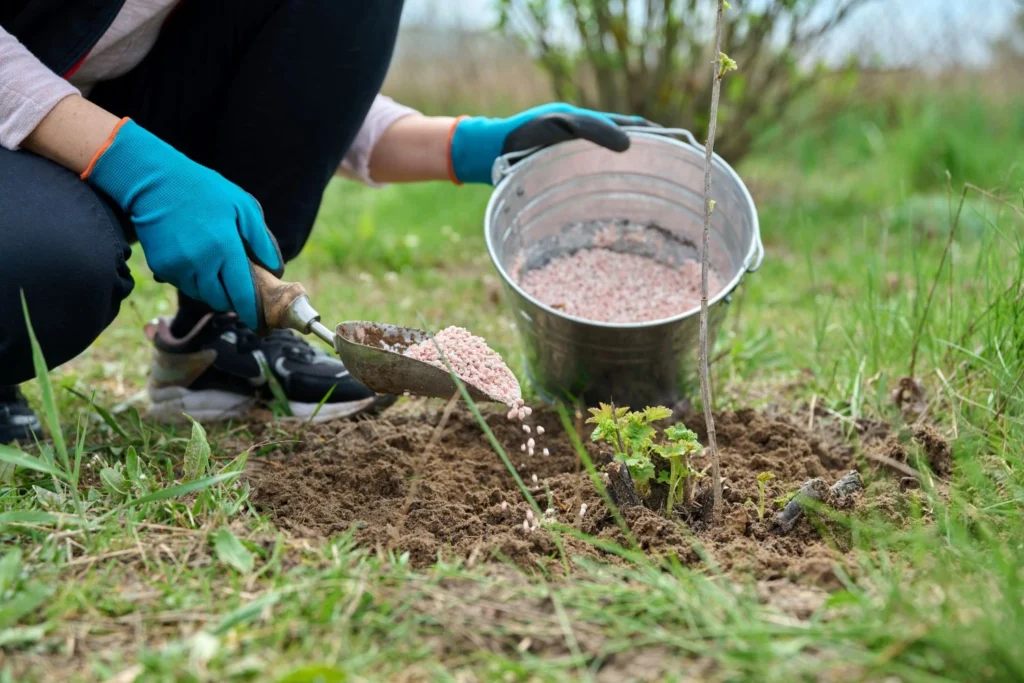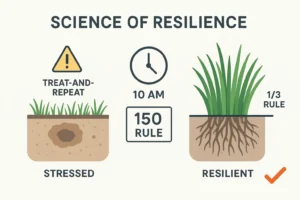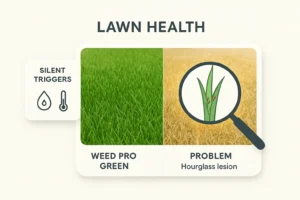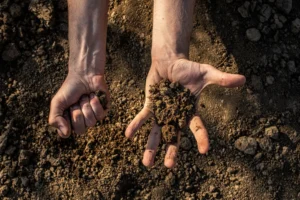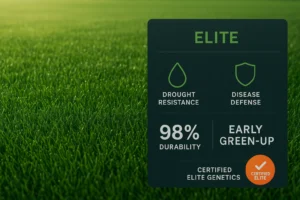Let’s talk truth, Atlanta. You want a lush, green lawn, but you also want to feel good about how you get it. So maybe you’ve been eyeing that organic lawn care fertilizer, imagining your yard as a chemical-free paradise. But before you throw down that compost-based mix and cross your fingers, let’s pause. Because here’s the dirty little secret: when it comes to fertilizing warm-season grasses like Bermuda and Zoysia (hello, Georgia staples), organic options often fall flat.
At Weed Pro, we’ve seen it time and time again, homeowners swap synthetic blends for so-called “greener” choices, only to end up with patchy turf development, weak color, and a whole lot of frustration. Let’s dig into why lawn care organic solutions aren’t always the best bet for your Atlanta lawn, and what to consider before making the switch.
What Exactly Is Organic Lawn Care Fertilizer?
Organic lawn care fertilizer is made from natural sources, think bone meal, fish emulsion, manure, or compost-based fertilizer. The idea is to feed your lawn without harsh chemicals, relying on organic nitrogen sources that break down slowly over time.
Sounds great in theory, right? But in practice, these slow-release nutrients often don’t keep up with the fast-paced demands of warm-season grasses in our Southern heat. That’s where the trouble starts.
Why Atlanta’s Climate Makes Organic Fertilizers Struggle
Atlanta’s long, hot summers and quick green-up periods in spring demand lawn food that acts fast and sticks around. The problem? Organic options usually contain low nitrogen content, and that means your grass doesn’t get the boost it needs when it needs it.
Add in our frequent rainstorms, and those nutrients can get washed away before they even make a dent. That leads to inconsistent lawn results, where one side of your yard looks decent and the other turns a sad shade of yellow.
The Problem with “Slow and Steady” Fertilizer in Atlanta Lawns
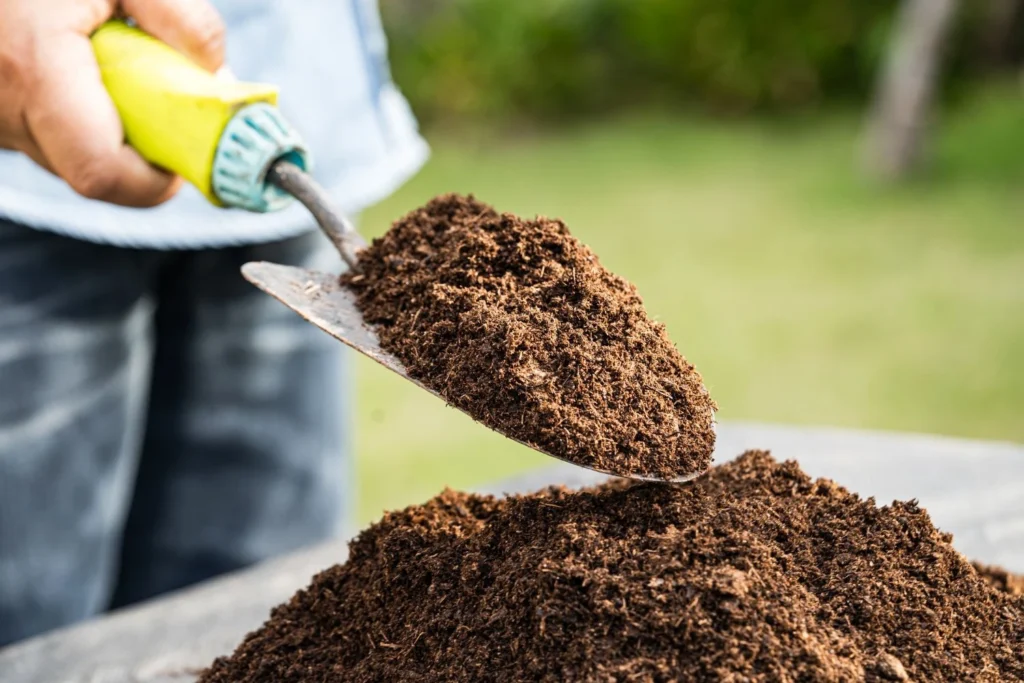
Slow-release sounds smart, until your lawn starts fading fast. Atlanta lawns often need a jolt of quick-acting nitrogen to recover from summer heat, spring wake-ups, or post-aeration stress.
But with organic lawn maintenance, you’re stuck waiting. And while your neighbor’s lawn is glowing from a balanced synthetic treatment, yours is still “warming up.” The result? Poor color retention that leaves your grass pale, not proud.
Common Organic Lawn Fertilizer Myths—Busted
Let’s bust a few common lawn fertilizer myths that sound convincing, but don’t always hold up in the Georgia clay.
Myth 1: “Organic means better for the environment.”
Not always. Some organic nitrogen sources can actually leach phosphorus into waterways, especially if overapplied. Plus, they often require more frequent applications, increasing your overall carbon footprint.
Myth 2: “Organic lawn care service is safer for pets and kids.”
While fewer synthetic chemicals might sound like a plus, some organic materials (like blood meal or manure-based mixes) can attract pests or pose risks if ingested.
Myth 3: “My lawn will look just as green, just more naturally.”
Unfortunately, many Atlanta homeowners find their lawns look less like a golf course and more like an abandoned lot with micronutrient deficiencies and inconsistent color.
Why You Might See Patchiness and Pale Spots
This isn’t just theory, patchy turf development is one of the most common complaints we hear from organic lawn converts. Here’s why it happens:
- Uneven nutrient release
- Poor breakdown in clay-heavy Georgia soil
- Lack of essential micronutrients like iron and potassium
- Susceptibility to fungus due to over-watering while waiting for results
Bottom line: unless you’re committed to laboratory-level soil testing and strategic timing, it’s hard to makeorganic lawn care solutions work on your own.
What to Do Instead
If you’re chasing that lush, uniform green but still want to keep sustainability in mind, our advice is this: don’t choose sides. Choose smart lawn care. That means:
- Seasonal soil testing to target real deficiencies
- Flexible programs based on grass type, sun exposure, and rainfall
- Reliable scheduling so your lawn gets what it needs, when it needs it
Let’s be honest, an organic lawn care service sounds nice, but in Georgia? It’s often underwhelming.
Let’s Give Your Lawn What It Actually Needs

Your lawn isn’t a marketing gimmick, it’s a living, growing ecosystem with real demands. If you’re tired of organic lawn care fertilizer letting you down, let Weed Pro step in with proven strategies and products that actually work in Georgia soil. We’ll assess your yard, listen to your goals, and build a custom plan that balances results and sustainability.
Ready to say goodbye to pale patches and hello to a greener, stronger lawn?
Contact us today and let’s get started!
❓FAQ: Your Organic Fertilizer Questions—Answered
Can you add synthetic fertilizer to an organic lawn if it’s not responding well?
Absolutely. Many homeowners start with fully organic programs, but later add targeted synthetic applications to improve color or growth. Just be mindful of timing and avoid over-fertilization.
Do organic fertilizers work better in cooler northern climates?
Yes! Cooler, wetter climates often allow for better microbial activity and nutrient breakdown, conditions that help organic nitrogen sources perform better than in hot, dry Georgia summers.
Is it true that organic fertilizers can attract rodents or bugs?
Unfortunately, yes. Some animal-based organic fertilizers, like bone meal or fish emulsion, can attract pests like raccoons, ants, or rodents, especially if not watered properly.
👉 Up Next: Effective Weed Control Methods for Vibrant Flower Beds
Curious if going organic is really better for the planet, or if it’s just clever marketing? Don’t miss our next article:
“Effective Weed Control Methods for Vibrant Flower Beds: How to Prevent and Remove Weeds Safely.“

